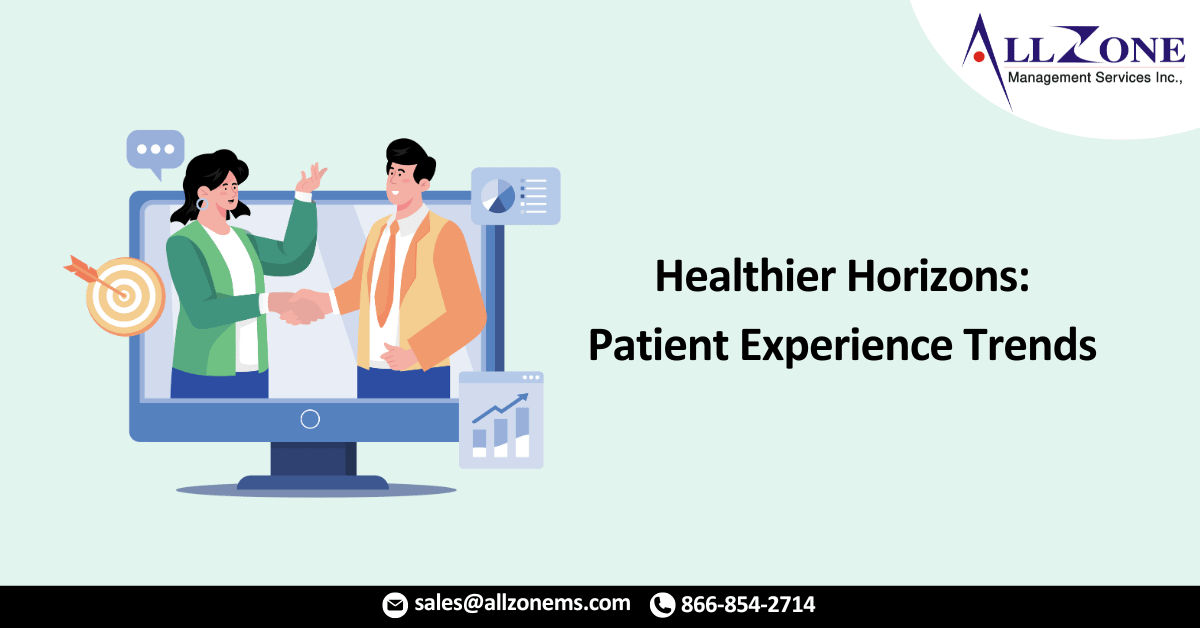The healthcare landscape is undergoing an unprecedented evolution, set to drive a significant transformation in patient experience in 2024. Recent technological advancements, coupled with increased patient expectations for enhanced care, are converging with a comprehensive approach encompassing clinical, social, and behavioral facets of patient well-being.
This convergence necessitates the modernization of care delivery systems to meet these evolving demands. Moreover, the imperative to alleviate staff burnout is prompting healthcare organizations to redefine their operational strategies and interactions with patients.
Here are the key areas where we anticipate witnessing these transformative changes:
Tailoring Experiences to Each Consumer: The Power of Hyper-Personalization
Keep an eye out for the shift towards hyper-personalization shaping the patient experience in 2024. Healthcare providers are leveraging technology to provide exceptionally personalized care that goes beyond mere treatment plans. This involves understanding patients’ communication preferences, lifestyle choices, and unique requirements. By adopting personalized strategies, healthcare professionals will establish stronger connections with patients, enhancing treatment adherence and outcomes while reducing the overall cost of care.
How Generative AI is Reshaping Predictive Healthcare
Artificial Intelligence (AI) is enhancing traditional diagnosis, evolving into a potent predictor of healthcare results. Generative AI algorithms are transforming patient care by empowering providers to predict outcomes more accurately. Through the utilization of vast datasets and advanced algorithms, healthcare experts can anticipate potential health paths, enabling proactive interventions and personalized treatment strategies. This predictive capacity will streamline swift and precise decision-making, ultimately enhancing patient care and prognostic accuracy.
Holistic Care: Where Mind, Body, and Spirit Flourish
There’s a transformative shift towards holistic care that’s redefining the conventional healthcare model. Understanding that health extends beyond medical conditions, practitioners are embracing a more comprehensive approach. Beyond addressing symptoms, healthcare providers now take into account the interconnected facets of patients’ lives, encompassing social, behavioral, nutritional, and physical factors. This holistic approach prioritizes a deeper understanding of patients’ overall well-being, emphasizing preventive care and enhancing long-term health outcomes.
Integrated Platforms Unite Information for Streamlined Healthcare Workflow
Efficient administrative processes pose a significant challenge, particularly for multi-location medical practices. Inconsistencies in patient experiences among different sites underscore the pressing need to establish standardized excellence across the board.
Integrated Healthcare Management Platforms are emerging as the answer, consolidating various disjointed software applications for billing, scheduling, and patient records into a unified platform. When integrated, these platforms streamline administrative duties, ensure standardized procedures across locations, and notably ease the workload on already strained office staff.
Tackling Mental Health with Enhanced Screening Processes
The growing mental health crisis in the US has emphasized the crucial role of early detection. Healthcare institutions are placing greater emphasis on integrating mental health screenings to identify at-risk patients and notify staff. By integrating screening tools that overcome traditional barriers to accurate completion and directly inputting results into electronic health records, this process is being modernized, ensuring efficient data capture and relieving pressure on administrative teams. Studies show that patients tend to be more open about mental health concerns when using private or remote screening methods, even more so than during discussions with their primary care physician.
In 2024, healthcare practices are poised to revolutionize patient care and experience significantly. The merging of patient-focused strategies, predictive technologies, holistic care frameworks, and updated administrative systems is set to redefine healthcare, enhancing the overall patient journey. Embracing these advancements won’t just elevate patient outcomes and alleviate staff pressure but also steer healthcare delivery towards a more personalized, comprehensive, and efficient system, shaping the future of healthcare delivery.

